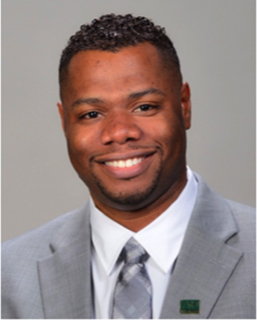Daniel C. Lee, PhD, is an assistant professor and founding faculty member (2010) at University of South Florida (USF) College of Pharmacy & Pharmaceutical sciences, USF Health Byrd Alzheimer’s Institute. Dr. Lee received his B.S. degree in chemistry in 1999 at Lincoln University, Pa., and his Ph.D. in Pharmaceutical Sciences in 2005 in a pharmacology/toxicology track at Florida A&M University College of Pharmacy and Pharmaceutical Sciences. His dissertation focused on lysosomal proteases and protease inhibitors in models of Parkinson’s disease. Dr. Lee did his postdoctoral work at the USF College of Medicine with Dave Morgan, PhD, and Marcia Gordon, PhD, which focused on novel therapies for Alzheimer’s disease models and the role of inflammation in tau and amyloid beta pathology. As a postdoctoral scholar, he received numerous accolades, including the USF Research Interdisciplinary Postdoctoral Scholar Outstanding Presentation Award, awarded three times (2007, 2008, and 2009), as well as seven travel awards to international conferences. He is a member of Society for Neuroscience and has served as a FASEB MARC peer mentor since 2006. His current research focuses on the impact of inflammation, arginine metabolism and polyamine biology during tauopathies and synucleinopathies. He is an award recipient of Alzheimer’s Association, Cure PSP, The Michael J. Fox Foundation for Parkinson’s Research, and BrightFocus Foundation.
"My career direction really started with my grandfather, a physician, who planted the seed of healthcare in our family. My father (Daniel Lee, Jr.) became a physician’s assistant; his brother served as a physician in the military; one of my sisters received her PhD in pharmacology and now works for U.S Food and Drug Administration; and the other received her doctorate in pharmacology. There is an innate drive to find cures for these devastating diseases.
My grandfather, who’s also named Daniel Lee, also motivated my current research focus. He was diagnosed with Parkinson’s disease in 1998, while I was studying chemistry as an undergraduate, and that motivated me to pursue a doctorate in neuropharmacology. He was later diagnosed with Alzheimer’s disease, and this guided me toward an Alzheimer’s focus to study commonalties and differences between the two top neurodegenerative diseases."
